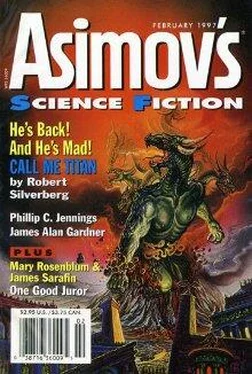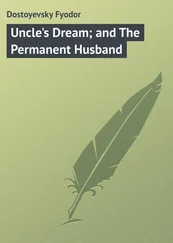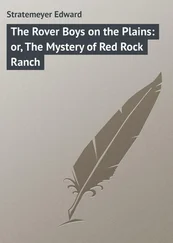Uncle River - Passing the Torch
Здесь есть возможность читать онлайн «Uncle River - Passing the Torch» весь текст электронной книги совершенно бесплатно (целиком полную версию без сокращений). В некоторых случаях можно слушать аудио, скачать через торрент в формате fb2 и присутствует краткое содержание. Год выпуска: 1997, Издательство: Dell Magazines, Жанр: Фантастика и фэнтези, на английском языке. Описание произведения, (предисловие) а так же отзывы посетителей доступны на портале библиотеки ЛибКат.
- Название:Passing the Torch
- Автор:
- Издательство:Dell Magazines
- Жанр:
- Год:1997
- ISBN:нет данных
- Рейтинг книги:5 / 5. Голосов: 1
-
Избранное:Добавить в избранное
- Отзывы:
-
Ваша оценка:
- 100
- 1
- 2
- 3
- 4
- 5
Passing the Torch: краткое содержание, описание и аннотация
Предлагаем к чтению аннотацию, описание, краткое содержание или предисловие (зависит от того, что написал сам автор книги «Passing the Torch»). Если вы не нашли необходимую информацию о книге — напишите в комментариях, мы постараемся отыскать её.
, and has written and published in small presses for many years, he considers “Passing the Torch" to be his first major sale.
Passing the Torch — читать онлайн бесплатно полную книгу (весь текст) целиком
Ниже представлен текст книги, разбитый по страницам. Система сохранения места последней прочитанной страницы, позволяет с удобством читать онлайн бесплатно книгу «Passing the Torch», без необходимости каждый раз заново искать на чём Вы остановились. Поставьте закладку, и сможете в любой момент перейти на страницу, на которой закончили чтение.
Интервал:
Закладка:
“Come on in. Have a seat.”
Prabaht burst through the door but didn’t sit. “Have you heard?”
Prabaht’s hovering and pacing had once irritated Esther. Now she just sat down herself. “I’m a little tired today. Make yourself coffee. Heard what?”
“The shit hit the fan this morning.” Prabaht set the kettle on the stove to boil and put a paper towel in the funnel for a filter over the glass coffee pot.
Esther thought of her misbehaving drain—and brain. “Things have been a little off,” she said.
“They didn’t come here, did they?” Prabaht stared, intense.
“You’re the only person who’s come here all day. What’s happened?”
“They started rounding up everyone with a drug record. Then things got crazy.” Prabaht scooped coffee into the ersatz filter and fussed impatiently at the kettle.
“I should think!” Esther replied. “Numbers alone… ”
But then she did think. Subjective and objective: Everyone mixes them. It can’t be helped. Prabaht always jumped to conclusions, nearly always wrong. Something had happened, no doubt, but Prabaht’s projections almost certainly misinterpreted events.
Prabaht paced, drank coffee, and ranted about the government and the Jesuits. Esther filled her pipe again and lit it. Prabaht glanced, somewhat wild-eyed, out the window, then smoked with her. Esther knew it made him uncomfortable that she just set the pipe on the table when it was empty, but she refused to acquiesce to his paranoia by hiding it.
“I’ve seen the maps, you know,” Prabaht said, over his second cup of coffee.
“I’m hungry,” said Esther. “Will you join me for dinner?”
“Can’t stay,” said Prabaht, “but you go ahead.”
Esther did. She spooned cooked beans into a pan with a little bacon grease and set it on the stove to heat, got out a jar of salsa—she still put up a full year’s worth—and warmed a flour tortilla. Sometimes she would fix a plate for Prabaht even if he said no. He would usually eat it. This evening, she didn’t bother. If he consumed nothing but coffee until he starved, that was his problem.
“They’ve had streets laid out for a concentration camp right up at Longhorn Gap for years! ” Prabaht’s voice faded into a meaningless hum. What Esther enjoyed about him, she thought, was the way his knees and elbows flapped about as he paced and jabbered, like a hyperactive heron.
Esther grated a bit of longhorn cheese, carefully scooped the beans onto the tortilla with the cheese and salsa, folded the tortilla, then ate her supper with a knife and fork, while Prabaht’s voice played on in rhythm with his body.
Breeze stilled. Sun set. A moon, more than half full, illuminated the peaceful yard. Esther could hear Walnut Creek, fifty feet from the house, behind gaps in Prabaht’s monologue.
Prabaht paused, stood stock still for the first time since entering. Esther knew this signal, and focused in on him as he said, “Well, got to go. I’ll stop by tomorrow, they don’t haul me off first. Need anything?”
“I could use a little wood split,” said Esther, “if you have time.”
“Sure.” Prabaht flicked on the yard light and strode out the door.
The house still held the sunny afternoon’s warmth, but Esther built a fire for evening. She knew she would be sleepy again soon. She heard the quick axe strokes in the yard as she washed her dish, spoon, knife, fork, and grater while the fire caught.
Prabaht carried in the full kindling box, followed by four armloads of aromatic juniper and solid oak. Esther held out two dollar bills.
“That’s all right,” Prabaht raised a hand.
“No, you take it,” said Esther.
It was a ritual repeated many times in the two and a half years that Prabaht had been Esther’s closest neighbor. Esther’s social security was a meager income, but consistent, and she owned her house outright. Erratically employed and poorly organized, Prabaht was in constant danger of losing his home for failure to pay the ninety-dollar-a-month rent.
Prabaht stuffed the two dollars in his pants pocket, reheated the last of the coffee, and drained the pot. “Well, got to go,” he said as he plunked his cup down.
“Good to see you,” said Esther, as Prabaht stalked out in his T-shirt through the chilly moonlit evening.
Esther set an oak log on the fire—quite as substantial as she cared to lift—adjusted the damper, rinsed out the coffee pot and Prabaht’s cup, as well as her own tea cup, and then decided she might as well go to bed. Best thing for a stroke is a good night’s sleep, she thought. Then it occurred to her: Oh damn! I didn’t think to ask Prabaht to look at that drain.
Esther looked for the puddle. It seemed smaller, rather than larger, even after she had washed the few dishes. Oh, well, perhaps things would make better sense tomorrow.
In the morning, Esther felt better, but decided perhaps she should only have one cup of coffee. She added a dollop of half-and-half; it was almost gone.
Esther sat in her chair and contemplated the way the sun sparkled on the morning’s frost. She had intended to drive to town today to pick up the mail and a few groceries—before she was reduced to using that hideous powdered creamer in the coffee. The four-and-a-half mile trip once a week kept the faded red Valiant that had looked new fourteen years ago when she’d bought it (though, of course, it wasn’t) adequately lubricated. The only major work she had ever had to do on it was to have the wheel wells modified to accomodate taller wheels, so that she would have the clearance she needed crossing the creek.
But maybe she should wait a day. Perhaps she should give Stella at the post office a call. Better to say she would be in in a day or so than to have someone nosing around suspecting her of being unable to take care of herself.
Esther put on her glasses and read a bit in an historical novel from the State Library Books by Mail—a wonderful program for rural people. Then she made herself a boiled egg and a slice of toast, and did have another third of a cup of coffee. At eight thirty-five, she tried calling the post office. Her phone was still dead.
Many people Esther’s age spent their lives in front of a television. Till the advent of cable, which did not extend far enough out of town to reach Esther, and the satellite dish, reception was inadequate to make television worth the bother at Esther’s house. Visitors were appalled. Jennifer wanted to help Esther buy a satellite dish.
“If I wanted all that racket, I’d have moved to some noisy hell hole like Phoenix long ago.”
Jennifer brought the subject up every six months. Esther always said no. In her urgency to defend her independence, she usually managed to say it in a way she later felt guilty for. Oh well, Esther thought, if a daughter hasn’t gotten used to you after sixty years, what’s to be done?
Despite not wanting a television, there were occasions when Esther would have liked some news. She did have a radio, two in fact. One was part of her tape player. The other had been a bonus with a magazine subscription. Neither currently worked. Due to distance and mountains, reception was abysmal even if they had. Only the Navajo station out of Window Rock came in clearly, and, of course, most of the news on it was in Navajo.
Esther put on her brown wool jacket, and a brown wool hat with orange decorations she had knitted since last winter and only first worn the past couple of weeks, and went outside. The thermometer, shaded by the overhang of the roof, read twenty-seven degrees, but bright sun had already melted the frost off the car. Birds chirped in the clear, still morning. The sun felt warm and invigorating.
Esther walked to the car and raised the hood, careful not to exert herself too suddenly: Don’t want to pop another blood vessel, she thought. The sun shone full on the battery. If the phone still didn’t work in an hour, she thought she would drive in and see what was going on. Little backwaters on the creek held a thin skim of ice, crystal patterns radiating artfully. A fat ground squirrel scooted past. Esther walked thirty or forty yards along the bank of the creek. Then she heard a scrabbling sound.
Читать дальшеИнтервал:
Закладка:
Похожие книги на «Passing the Torch»
Представляем Вашему вниманию похожие книги на «Passing the Torch» списком для выбора. Мы отобрали схожую по названию и смыслу литературу в надежде предоставить читателям больше вариантов отыскать новые, интересные, ещё непрочитанные произведения.
Обсуждение, отзывы о книге «Passing the Torch» и просто собственные мнения читателей. Оставьте ваши комментарии, напишите, что Вы думаете о произведении, его смысле или главных героях. Укажите что конкретно понравилось, а что нет, и почему Вы так считаете.












